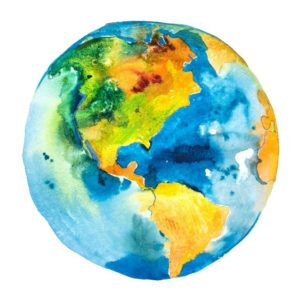For far too many years, the words and behaviors of stigma have been attached to so many of the differences that make up our human race. However, the combined stigma of mental illness has not only taken its toll on those who suffer from it but those who seek to support and help these individuals. Through no fault of their own, human beings must learn to live with its often-cruel effects. It is important to note that the courageous individuals who support and help are more than caretakers. They are true heroes. Every day they help fight off the battles of such devastating illnesses that destroy relationships, families, and even love. Love, which can be so powerful in itself, can never become enough. The constant push of these negative situations leaves most caretakers feeling frustrated, scared, and often alone.
While this issue is somewhat better today, nobody wants to talk about mental illness. While the stigma associated with it is more noticed, but we seldom see action to educate or stop it. So many individuals work to create safe worlds where those inflicted with these illnesses can survive and do the hard work of getting better. Some individuals do very well and begin to move back into a more “normal” life. Some will find their resilience to overcome, and some will survive. However, sadly, some never progress, and some even die.
 Where did these illnesses all come from? There are as many theories as people on this earth. Nobody wakes up one day and says I wish I had a mental illness or addiction. No one wants their life to be filled with horror and disbelief. Yes, some people are chemically born with some predispositions to diseases, and others sadly suffer from the results of intrusive reactions from trauma experienced in their lives. But make no mistake, these are not choices.
Where did these illnesses all come from? There are as many theories as people on this earth. Nobody wakes up one day and says I wish I had a mental illness or addiction. No one wants their life to be filled with horror and disbelief. Yes, some people are chemically born with some predispositions to diseases, and others sadly suffer from the results of intrusive reactions from trauma experienced in their lives. But make no mistake, these are not choices.
Those heroic caretakers are filled with compassion and goodwill. But when they do not take care of themselves or are placed in situations that overload their charity, they too become anxious, depressed, tired, and if this goes on too long, they will cease to care about those around them and even themselves.
COVID-19 has clearly shown us that we are all susceptible to disease and related anxiety, depression, and a building uncertainty that often feels like it is not getting better. The fight gets harder every day. But still, so many say… we can and will survive this. The real question is how well?
There has never been a time in my life when positive thinking has meant more to me than it does today. Positive thinking in these times is really hard work. The art of paying attention to something bad all around you but not letting it take hold of you and not giving it room to fester takes determination. But by filling your life with positive wishes and grateful thoughts, feelings and actions can start the process of positive change for so many things. Wishes sometimes become true not just by wishing them to be… but by making room for them to be.
One thought would be to stop watching, listening, or participating in all the negativity around us. While politics and moral decision-making may be important, it is all about them and us. What we believe and how that can be so different from what others think can often be very frustrating. This political and value bantering has been going on for as long as I can remember. It most likely will do so for years to come. Sometimes we need to take a stand about human rights, and sometimes we need to stand back… breathe, and look at what is important in our lives. If we clear our minds, we may find ourselves asking… what good is any right if we are not well enough to enjoy or practice it?
I started this writing about the stigma of mental illness. I will end it on the same note. We are all human. We all seek love. We all, like it or not, need each other. You see, we share a home, and it is called Earth. And just so we are straight about this… it belongs to all of us. Not just the rich or powerful. All of us. Even those whose lives are intertwined with mental illness, poverty, discrimination, and other life issues that contribute to stigma.
Most importantly, we all need to take care of ourselves and each other. The more we come together, share our stories, give each other honest and compassionate support, the more we will see that hope is real. If we all follow this path, there will be no place for stigma and uncertainty in our world. Life can be pretty remarkable when we all try to live this way. So, take the time to care for yourself and then care for others. This is one of those times in your life when being selfish is the right thing to do. The right thing to do for you and the rest of the human beings in our home… we call Earth.

